Rich Japanese cooperative culture set to continue
In terms of support for economic growth, Japan and Vietnam have given high priority to the Ho Chi Minh City urban railway line 1, the Ben Thanh-Suoi Tien route. So far, all the trains have been transported to Vietnam, and the construction work is being accelerated so that the line can be put into service very soon.
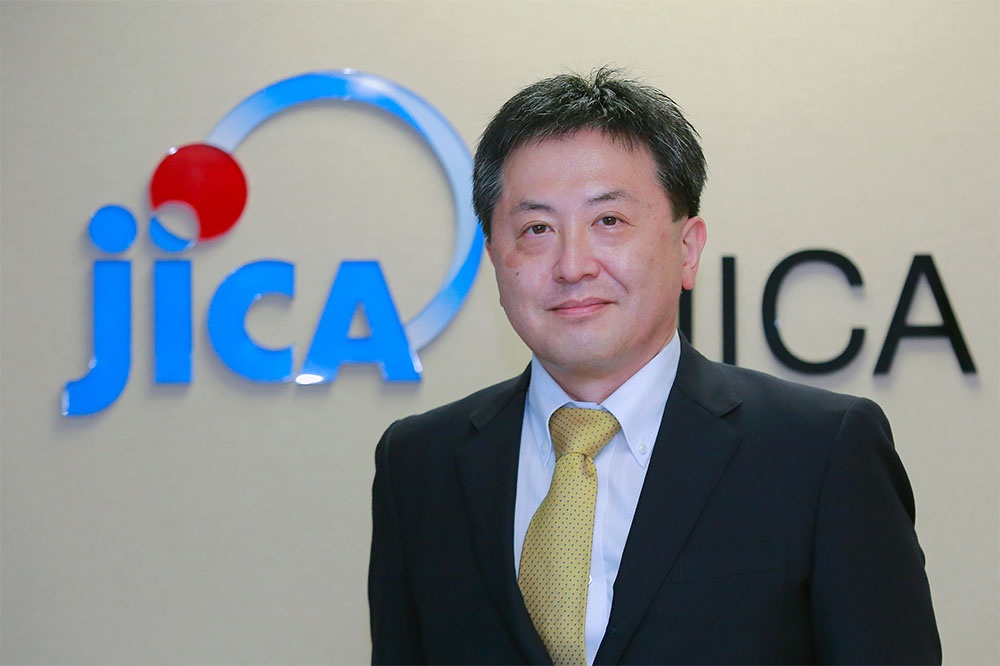 |
| Shimizu Akira, Chief representative in Vietnam Japan International Cooperation Agency |
JICA is also cooperating with the Vietnamese government to realise the carbon-neutral energy supply, namely an onshore wind power project in Quang Tri province, which started operations in late 2021. We are also working on a solar power plant which will contribute to the energy transition to greener energy in Vietnam.
Human resource (HR) development is recognised as the foundation for growth, as Vietnam Japan University has 260 graduates and over 130 new students enrolled. Furthermore, over 40 Vietnamese cadres, civil servants, and government employees are currently attending Master’s and Doctoral programmes at Japanese universities under a scholarship scheme for HR development. In 2023, it is expected that around 50 more Vietnamese officials will come to Japan under the programme.
JICA will also continue to focus on grassroots cooperation, including dispatch of volunteers. After a hiatus caused by the COVID-19, Vietnam is the first country in the world that we have resumed dispatching volunteers to since 2020, and we intend to resume the number of volunteers at the same scale as previously, with an average of over 30 to be dispatched to Vietnam each year.
Cooperation will continue with Vietnam on economic development and HR to help the country maintain its high economic growth journey.
Previously, many Japanese businesses wished to expand their investment into Vietnam. However, the nation’s localisation rate almost remains unchanged – less than 40 per cent – as compared to 10 years ago, although it is about 70 per cent in China, and nearly 60 per cent in Thailand. We have therefore been making efforts in supporting many localities in Vietnam to increase the localisation rate to attract more foreign investment, including Japan’s to Vietnam.
Specifically, we are now implementing a programme in collaboration with the Ministry of Planning and Investment to support Japanese enterprises by provision of market information and guidance. This helps them to look for suitable business partners and to overcome technical shortcomings in Vietnam with the support of Japanese experts.
Along with this, JICA is now cooperating with the Vietnamese government in formulating a loan project to support 13 vocational schools and a technical cooperation project in Vietnam, which now faces difficulties because of the sudden and unexpected change of the country’s regulations.
If all procedures are completed and the project is deployed, we hope that Vietnam’s training of young and skilful labourers will be improved gradually but significantly. One of the big characteristics of JICA’s cooperation is that Japanese experts would be assisting from the beginning, to enable Vietnamese people’s capacity to provide training by themselves.
We also believe that official development assistance (ODA) loan continues to play an important role in infrastructure development, which is inevitable for Vietnam’s future growth. Vietnam has been drastically decreasing the borrowing from ODA loan and seeking finances by their own sources, such as bonds; however, Vietnam still needs to develop infrastructure for economic growth, and there are still many roles that ODA loan can play.
Compared with other financial instruments in the market, Japanese ODA loans are more concessional with long repayment periods (about 30-40 years) with low and fixed interest rates. This suits important and high-quality infrastructure developments such as the aforementioned railway line in Ho Chi Minh City. Moreover, one of the unique features of Japan’s ODA is technical cooperation, which is mainly provided as grants and play a significant role in HR development.
This assistance, which is the combination of loans and grants, will not only truly help economic growth and improve people’s lives in Vietnam, but also help strengthen the connection of the two countries.
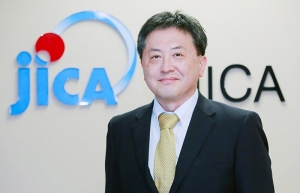 | Developing human resources to adapt to new normal Human resources, especially skilled workforce, play a decisive role in the socioeconomic development of each country. As the Fourth Industrial Revolution gathers momentum in Vietnam, the development and nurturing of high-quality human resources to accelerate industrialisation and modernisation as well as internationalisation are especially essential to Vietnam. |
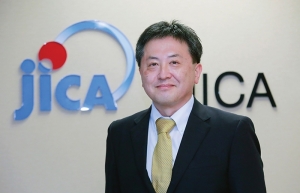 | Infrastructure investment to aid the social recovery In many developing countries, insufficient and poor infrastructure has resulted in stagnation in the flow of resources, difficulty in absorbing investment capital, causing bottlenecks and directly affecting economic growth. Therefore, investment in developing infrastructure has been a priority of many developing countries, including Vietnam. |
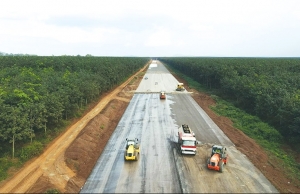 | Supporting Vietnam through official Japanese assistance Japan is expected to continue supporting Vietnam via its official development assistance. Shimizu Akira, chief representative of the Vietnam Office of the Japan International Cooperation Agency, explains how Japan can help its strategic partner accelerate the construction of infrastructure for socioeconomic development. |
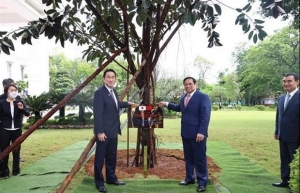 | Japanese PM attaches importance to relations with Vietnam: Foreign Press Secretary Japanese Prime Minister Kishida Fumio always attaches importance to the Japan-Vietnam relations, Foreign Press Secretary Ono Hikariko said while chairing a virtual press conference on May 1 announcing the initial results of the Japanese PM’s on-going official visit to Vietnam. |
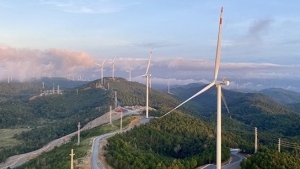 | Japan to increase financial assistance for Vietnam's energy transition An agreement on energy transition inked in Tokyo underlines Japan's support for Vietnam's energy transformation programmes. |
What the stars mean:
★ Poor ★ ★ Promising ★★★ Good ★★★★ Very good ★★★★★ Exceptional
Related Contents
Latest News
More News
- State corporations poised to drive 2026 growth (February 03, 2026 | 13:58)
- Why high-tech talent will define Vietnam’s growth (February 02, 2026 | 10:47)
- FMCG resilience amid varying storms (February 02, 2026 | 10:00)
- Customs reforms strengthen business confidence, support trade growth (February 01, 2026 | 08:20)
- Vietnam and US to launch sixth trade negotiation round (January 30, 2026 | 15:19)
- Digital publishing emerges as key growth driver in Vietnam (January 30, 2026 | 10:59)
- EVN signs key contract for Tri An hydropower expansion (January 30, 2026 | 10:57)
- Vietnam to lead trade growth in ASEAN (January 29, 2026 | 15:08)
- Carlsberg Vietnam delivers Lunar New Year support in central region (January 28, 2026 | 17:19)
- TikTok penalised $35,000 in Vietnam for consumer protection violations (January 28, 2026 | 17:15)

 Tag:
Tag:




















 Mobile Version
Mobile Version